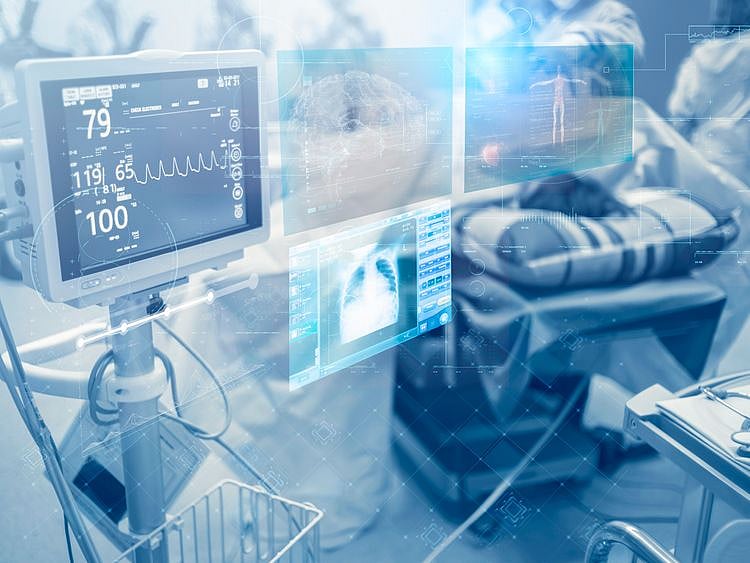American Hospital Dubai believes in expanding the boundaries of care delivery by combining world-class expertise with advanced medical technology — while directly investing in healthcare research and innovation for the greater good. Ahmad Yahya, CIO/COO at American Hospital Dubai, explains how the marriage of next-gen tech and data is delivering an improved experience for patients.
How is technology a driver of healthcare transformation for your hospital?
American Hospital Dubai has consistently strived to look for advanced next-generation technologies and process automations with a focus on enhancing its patient experience, clinical outcomes and improving its operational efficiencies across its healthcare facilities. We are achieving this with our digital transformation strategy that includes a harmonious marriage of data, digital tools, and communication to drive better healthcare. It should be noted that technology proliferation has moved us from being a cure-oriented organisation to a preventive one, from instinct-based to data-driven. On the AI front, we believe, AI will transform the delivery of care where it will impact every aspect of healthcare, focusing on detection, prediction and prevention.
AI should be looked at as a complementary tool rather than replacing anything traditional where its models will mimic the human cognition analysis, presentation, and comprehension of complex medical and healthcare data. It should empower medical staff to focus more precisely in terms of their expertise.
How are AI model outcomes adding value to American Hospital Dubai’s business operations?
We are using the power of AI to help minimise the burden of chronic diseases for the welfare of our patients. Our AI approach strives to develop scientifically proven, relative, and explainable AI models that support our clinical operations and outcomes. We look at AI models as complementary and preventive tool rather than a ‘cure’. We believe technology will drive precision medicine. At American Hospital Dubai, we are currently evaluating AI models with a focus on improving patient experience, staff productivity, call centre agent effectiveness, and clinical outcomes such as treatment plans and imaging. AI will also be important to us in the areas of chronic care management, prevention, care delivery, triage and diagnosis, clinical decision support, and diagnostics.
Could you talk about American Hospital Dubai’s use of advanced tech in Covid management in collaboration with Cerner and how it has impacted the situation?
With the collaboration with Cerner, we were able to develop and operationalise a Covid-19 model with a focus on risk identifiers available to identify patients who are at high risk for ICU admissions and risk of mortality. The predictors and the model intelligence helped us in prioritising ICU patients for hospitalisation and their risk factors for ICU admissions. The AI-led algorithm also helped us to identify the patients who are at high risk for ICU admissions and risk of mortality so we could provide them with timely and appropriate care. In the model, we used more than 5,000 attributes, analysed the top 50 risk identifiers across the globe and examined 100,000 combinations of identifiers for our patients to arrive at an accurate identification of the top ten features that will impact the outcome for Covid-19.
In summary, we are able to improve clinical outcomes and provide focused personalised patient care by implementing specific care pathways. This is a concrete example of how AI plays a vital role in improving healthcare.
— As told to Emma Procter, Special to GN Focus
Sign up for the Daily Briefing
Get the latest news and updates straight to your inbox
Network Links
GN StoreDownload our app
© Al Nisr Publishing LLC 2026. All rights reserved.
